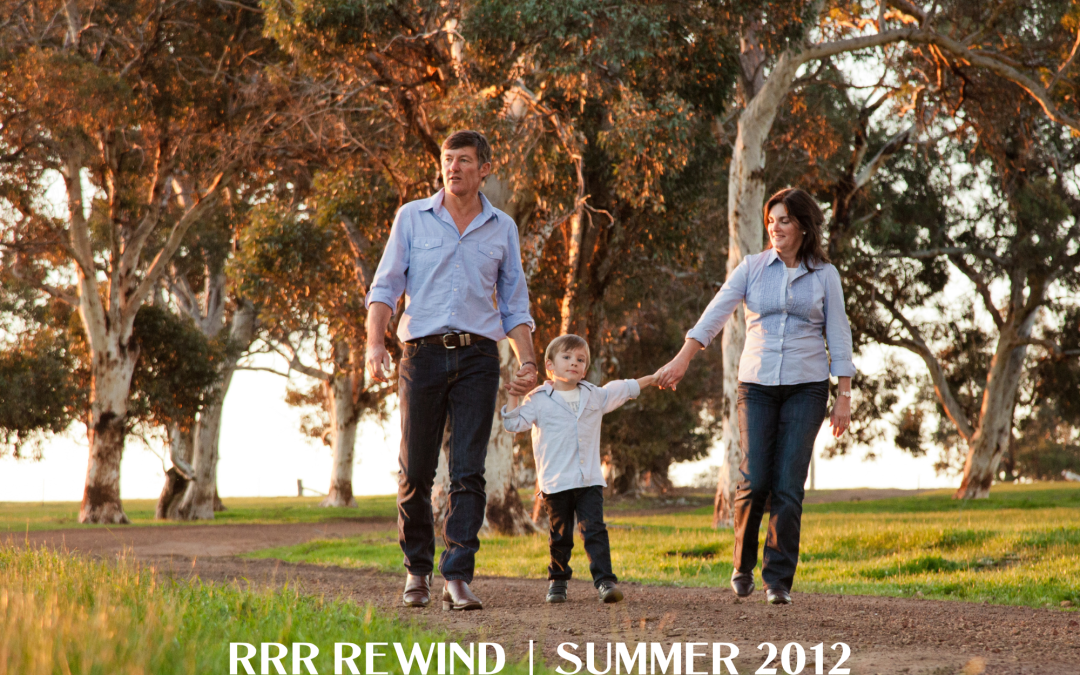Written by Jo Fullwood for the RRR Newsletter | Edition 62, Summer 2012
From Sydney to settling in the Wheatbelt, Tracy Meredith says life’s good in regional Western Australia.
It’s that old chestnut. We’ve all heard it before. Some of us have even lived through it.
City girl meets country boy, and life changes like we never thought possible.
For Sydneysider Tracy Meredith, moving to rural Western Australia with new husband, Ming, was just that. From inner city Sydney to WA’s wheatbelt, life couldn’t have turned out any different.
But despite the initial hurdles, she says life is good in the regions, and she now wouldn’t have it any other way.
“There is something about small communities, about feeling involved,” she said.
Mum to Joshua, and involved in various community and volunteer organisations, Tracy is the outgoing Deputy Chair of the Wheatbelt Development Commission (WDC) and is a Peer Supporter & Board Member of SIDS & Kids WA.
She says there are many things to love about regional WA.
“There are lots of good things about living here. I wouldn’t want to be bringing Josh up in Sydney, and living here I’m allowed to indulge in my guilty pleasure of growing roses and taking lots of dogs.”
“My favourite time of the day is about 5 or 6 o’clock when the sun is setting and you get that beautiful light that photographers love, being out in the paddock behind a mob of sheep. You just don’t get that in the city; it’s just lovely,” she said.
After working for a large American computer company, followed by a nursing career, Tracy took up a position as personal assistant to Fred Hollows and remained involved in the establishment of the Fred Hollows Foundation.
“At the time Fred was still working in the Prince of Wales hospital. He had projects in Eritrea and Nepal that he was trying to get up and running, while he was trying to run the hospital department and oversee the teaching of the doctors, as well as having a clinical and surgical case load himself. So when I came on board we were in the infancy stages of getting these projects established.
It really wasn’t until he was named Australian of the Year that he was able to raise his public profile which was enough to highlight the work he was doing overseas, raising much needed funds.
“We started off only working in two countries and when I left four years after the foundation started, we were working in three countries. Now the Foundation is in over 70 countries,” she said.
This period spent with Fred and Gabi Hollows had a major impact on Tracy’s life, and she said it also allowed her to add value to the organisations she is now involved with in regional WA.
“I realised that a lot of skills were transferrable. That’s one thing that I’ve learnt moving from such a diverse background in terms of my career, working in Sydney, then the international development and blindness development projects, coming to the region here. I thought that was a bit of a hurdle, but if you break it down and look at it at the base level of what your skill is, you can transfer those skills across a whole range of industries. What I felt I could offer the WDC was my background in sustainable development, strategic planning and development of their programs.
“I never get involved in any organisation unless I feel that I can add some value, and I value time and business. I take it very seriously that it’s the prerogative of a board member or a director, that you should be able to add some value.”
“…it was also a good opportunity for me to learn more about the wheatbelt and the diversity of the industries that are around the 44 shires that make up the wheatbelt.”
“It was also a good opportunity for me, having come from Sydney, to learn about the region that I lived in. So as much as I felt I could add value to this organisation, it was also a good opportunity for me to learn more about the wheatbelt and the diversity of the industries that are around the 44 shires that make up the wheatbelt.”
“I’ve always been involved in community organisations, whether it’s been organisations in the Shire here, or more recently the WDC which I’ve been on for nearly nine years.”
When she moved to the West Arthur Shire, Tracy said she found simple things, like access to fresh food, a challenge.
“I couldn’t buy fresh chicken anywhere, so I went to the butcher in distress and asked where people bought their fresh chicken here. He said that most people killed their own chooks, so I had this vision of me chasing chooks around the back yard with half their heads chopped off!”
Isolation was also a major hurdle, and something she still has to grapple with on a regular basis.
“I’ve always been a fairly independent and resourceful person but, at times, isolation is a challenge. While we have a lot of centres around us, we are isolated.
Initially, there was the obvious challenge of not having your family and friends around you too, not having a strong established support network during difficult times and raising children.”
Life is a learning experience, and I feel most satisfied when working like I am making a valued contribution, both in a social and economic sense. “It’s been a great life here,” she said, “and I’ve learnt a great deal through that life lesson,” she said.
“While I am stepping down from the Board of the WDC, I plan to stay involved in regional development and health issues and look forward to future opportunities,” Tracy said.

